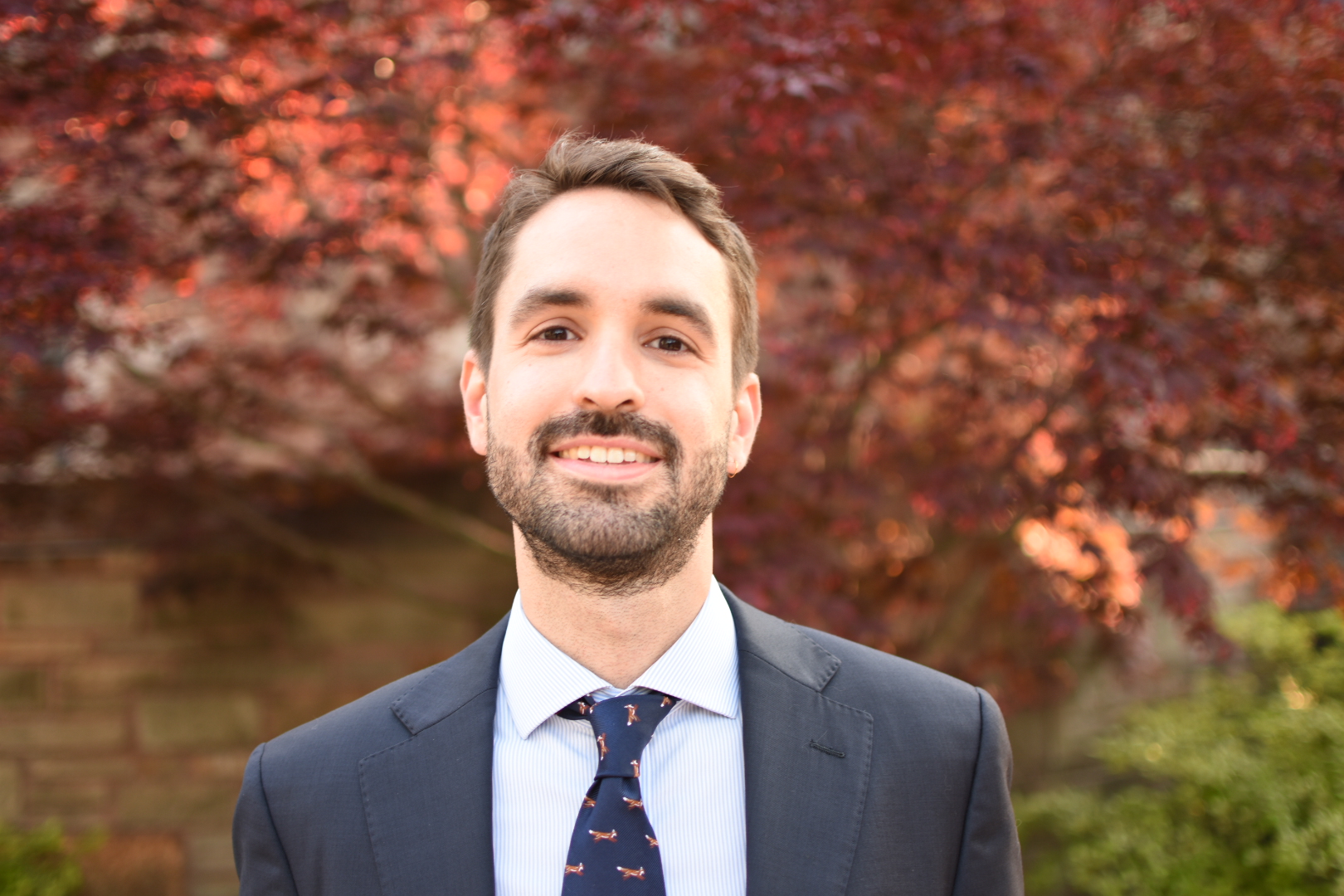Petersen v. Argentina: Unpacking a $16 Billion Judgment
How private investors won big against a foreign sovereign state.

Published by The Lawfare Institute
in Cooperation With

In September, a Southern District of New York (SDNY) judge ordered Argentina to pay $16 billion in damages to two minority shareholders of YPF, a state-controlled Argentinian oil company. The judgment was the result of a breach of contract related to Argentina’s 2012 nationalization of a controlling stake in the firm, and it is the largest-ever judgment against a sovereign country in a U.S. court. For perspective, it dwarfs the $2.4 billion settlement that hedge fund Elliot Management won, also in SDNY, in its (in)famous attempt to collect on Argentina’s defaulted public debts.
The staggering size of the damages comes at a particularly bad time for Argentina, which is going through a severe economic crisis and political uncertainty. And, at first glance, the judgment is surprising given the fairly robust protections that sovereign states receive in U.S. courts. How does a judge in New York have the authority to tell the government in Buenos Aires to turn over almost half of a year’s worth of the country’s tax revenues to private investors?
Background
YPF was founded in 1922 as the world’s first entirely state-owned oil company. In 1993, the Argentinian president privatized YPF through an initial public offering of the company’s shares. As part of this process, the government updated YPF’s bylaws to require Argentina to offer to buy out minority shareholders at a specified price if it ever reacquired a 49 percent or higher share of the company. In such an event, according to the bylaws, the Argentinian government would need to publish notice of the offer in New York, make Securities and Exchange Commission filings detailing the tender offer, and deliver offer materials to the New York Stock Exchange.
In 2012, then-Argentine President Cristina Fernández de Kirchner’s administration seized control of YPF facilities and operations and removed executives, including the CEO, from the company. Later that year, the Argentine legislature passed a law declaring a public need to expropriate a majority of YPF’s shares and granting the president the authority to “exercise all the political rights associated with the shares subject to expropriation.” Argentina ultimately agreed to pay Repsol, a Spanish multinational that had owned the majority of YPF’s shares, approximately $5 billion for its shares in 2014. But the government never made a tender offer to, or compensated, the minority shareholders.
At the time of the government’s takeover in 2012, Petersen Energía Inversora and Eton Park Capital Management were minority shareholders in YPF, owning more than 25 percent of the company’s shares. No longer able to service its debt using YPF’s dividend payments, Petersen later went bankrupt. The company then sued Argentina for breach of contract in 2015, and Eton Park followed suit in 2016.
The plaintiffs’ argument that Argentina breached a contractual obligation to them by neglecting to buy out their shares was fairly straightforward. The country’s lawyers argued that the obligation arose after the plaintiffs no longer held YPF shares and that the plaintiffs’ claims were not cognizable under Argentine law, which governed the bylaws. The court, however, rejected these arguments and ruled in favor of the plaintiffs.
What’s more, according to Judge Loretta A. Preska, and as later affirmed by the U.S. Court of Appeals for the Second Circuit, Argentina did not qualify for immunity protections granted to sovereign nations because it acted as a commercial entity, rather than as a sovereign state, when it breached its contractual obligations
The court’s decision is certainly notable, but much more interesting and substantive was its decision to hear the case in the first place, given the various protections—outlined in the sections below—that are typically available to states being sued in U.S. courts.
Sovereign Immunity
Sovereign immunity law protects states and their property from interference abroad. Rooted in international custom, rather than a specific treaty, the doctrine is generally understood to at least exempt states from the jurisdiction of foreign national courts. (We have argued previously in Lawfare that it should be interpreted more broadly.)
However, virtually all states agree that sovereign immunity is not absolute. Domestic courts can assert jurisdiction over the activities of a foreign state under certain circumstances, such as when the state consents to that jurisdiction or when the state acts as a commercial rather than a sovereign entity. The UN Convention on Jurisdictional Immunities of States and Their Property, which arguably reflects customary international law, codifies these exceptions. The United States’ domestic sovereign immunity statute, the Foreign Sovereign Immunities Act (FSIA), contains similar carve-outs.
In this case, the plaintiffs claimed that the district court had jurisdiction over Argentina under the FSIA’s “commercial activity exception.” In particular, they argued that the case fell under the “direct-effect clause,” which holds that states are not immune from suits in which “the action is based ... upon an act outside the territory of the United States in connection with a commercial activity of the foreign state elsewhere and that act causes a direct effect in the United States.”
To assess whether this was a “direct-effect” case, both the district court and the Second Circuit (on interlocutory appeal) applied the three criteria established by the Supreme Court in its 1992 Argentina v. Weltover opinion: whether the suit was (a) based on an act outside the territory of the United States, (b) taken in connection with a commercial activity, that (c) caused a direct effect in the United States. There was little doubt that the dispute arose from conduct outside the United States: The Second Circuit has held that the decision by a foreign state not to perform a contractual obligation is an act in that state. It was also clear that Argentina’s conduct had a direct effect in the United States because the contract—the bylaws—required it to carry out its tender offer obligations in New York.
So, the issue boiled down to the second factor: whether the case was based on a sovereign, noncommercial act of expropriation (as Argentina argued) or a commercial act of contract breach (as Petersen claimed). Per Weltover, U.S. courts look to the “nature” rather than the “purpose” of a state’s actions to characterize them as either sovereign or commercial. If the conduct in question is “peculiar to sovereigns” (such as operating a public insurance program or employing military personnel), then it is a sovereign act. By contrast, if it is a type of conduct that private parties typically engage in “for trade and traffic or commerce” (such as operating a power plant), then it is a commercial act.
The court held that it was the latter. The crux of the suit was Argentina’s failure to issue a tender offer—not the earlier expropriation, which may indeed have been a sovereign act. Even if Argentina’s professed purpose for reneging on its contractual duties was to facilitate a sovereign act of expropriation, the “nature” of a breach of contract as a commercial activity was determinative. The district court summed it up thus: “By entering into and repudiating contractual obligations—even ones acquired by sovereign acts—Defendants acted as ordinary market players and engaged in commercial activity.”
Act of State Doctrine
The act of state doctrine, which dates back to the 1890s, says that U.S. courts will not question the validity of public acts performed by other sovereigns within their borders. The doctrine is a creature of U.S. federal common law, not international law, and appears to be rooted in principles of international comity and separation of powers.
In this case, Argentina invoked the doctrine, claiming that the case required a U.S. court to “sit in judgment” of the validity of Argentina’s sovereign act of expropriation. The court disagreed, holding that the case turned instead on the operation of YPF’s bylaws in light of Argentina’s decision to expropriate. And Argentina’s official act—its expropriation law—neither compelled it to renege on its obligation to issue a tender offer nor absolved it from its contractual obligations under the bylaws. Therefore, the act of state doctrine did not apply.
Forum Non Conveniens
Argentina also raised a venue argument, forum non conveniens, twice during the proceedings. Under this doctrine, a court may dismiss a suit if it decides that proceedings in another jurisdiction would “best serve the convenience of the parties and the ends of justice.” This may be the case if, for instance, the events at issue or the evidence is located in another country. Courts weigh three factors in determining whether to dismiss a case under this doctrine: (a) the deference owed to the plaintiff’s choice of forum (here, SDNY), (b) the adequacy of the defendant’s proposed forum (Argentina, in this case), and (c) if an adequate alternative forum exists, whether private and public interest factors weigh strongly in favor of that forum.
In its 2016 opinion, the court noted that Petersen’s choice of U.S. court was entitled to some deference only because it was a foreign entity (Eton Park had not yet been joined to the case). But it found that Argentina had not shown that its courts would provide an adequate alternative forum. Although Argentine courts were typically adequate, here plaintiffs had shown a “well-founded fear of prosecution” if the plaintiffs had brought this case in Argentina. That fear, the plaintiffs explained, was largely rooted in a criminal complaint filed by Argentina’s attorney general against Petersen’s counsel and its litigation financing partner. Moreover, the court found that Argentina had not shown that private or public interests tilted strongly toward trial in Argentina.
Argentina renewed its motion to dismiss under forum non conveniens in 2019. The following year, the court again denied the motion, but on somewhat different grounds. It found that the plaintiffs’ choice of forum now deserved substantial deference since U.S. plaintiff Eton Park had joined. In contrast, it found that Argentina was now an adequate forum for litigation because its attorney general had dropped charges against Petersen’s counsel and Burford Capital, the plaintiff’s litigation funders. Yet, despite finding that private interest factors favored litigation in Argentina, the court ultimately held that public factors “strongly” tilted in favor of litigating in New York. In particular, it pointed to the solicitor general of the United States’ legal position that the U.S. had a strong interest in ensuring that “foreign states that enter U.S. markets as commercial actors do not enjoy immunity from lawsuits regarding violations of their commercial obligations.”
Judgment
Since the court had decided most of the disputed issues before trial at summary judgment, the bench trial in this case lasted just three days. The trial—which was before the judge and not a jury, as required by the FSIA—focused on establishing the date of breach and the size of prejudgment interest. The court ultimately awarded $14.4 billion to Petersen and $1.7 billion to Eton Park, much of which will go to Burford Capital.
***
Although the district court has issued its final judgment, this does not mark the end of the case. Argentina has filed an appeal with the Second Circuit and has obtained a temporary suspension of the start of payments pending that appeal. Argentina’s president-elect, Javier Milei, has not yet commented on his administration’s proposed strategy in the case but has suggested that YPF will be reprivatized. For plaintiffs, the focus now shifts to collecting this unprecedented payment.






